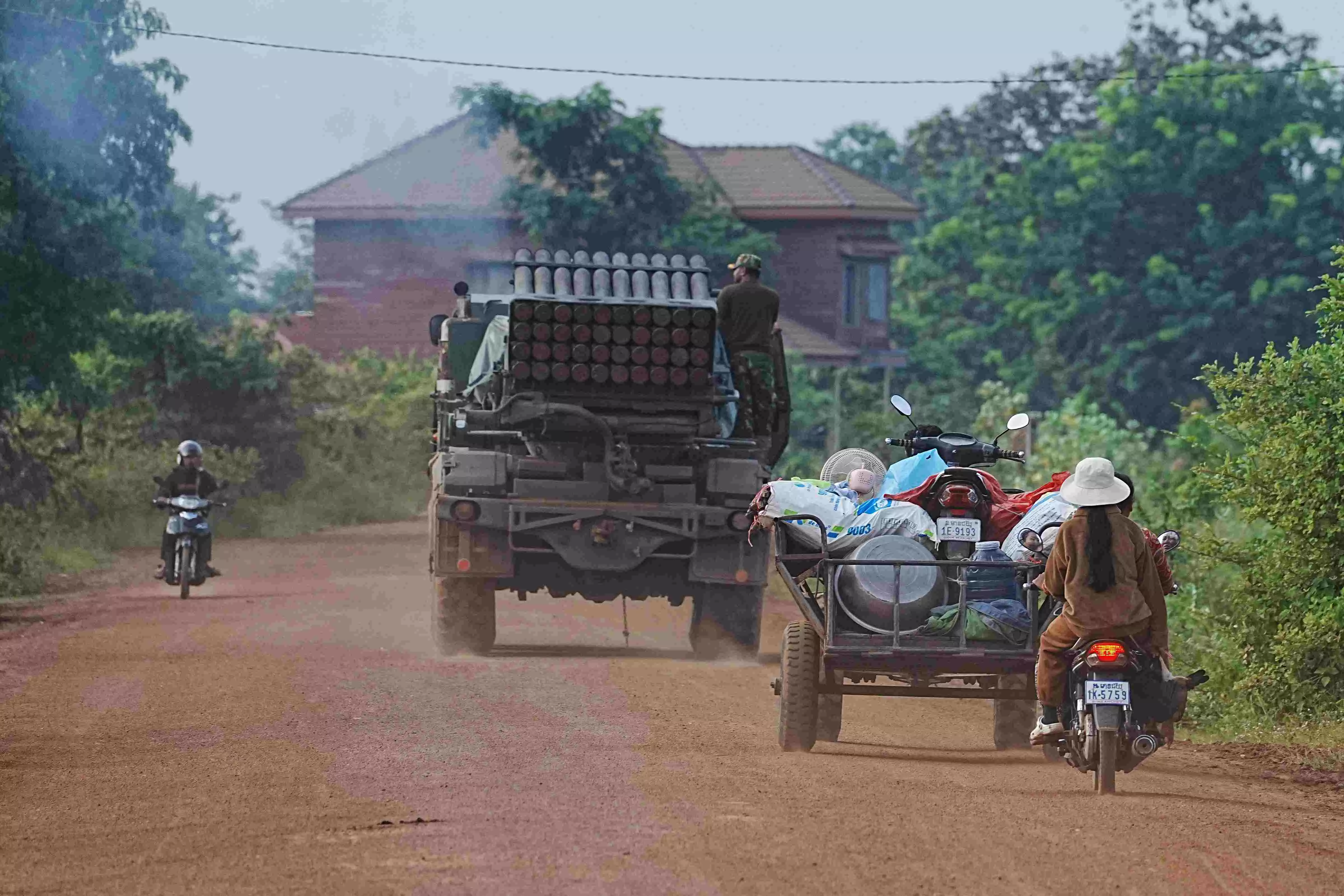Another Ceasefire, Another Sham?

Humanity has time and again learnt its lessons from grave wars, and yet, as if saturated with peace over time, has repeatedly retreated into the dark abyss of battlefields. The very institutions and the international framework, meant for institutionalising peace after major global conflicts, become obsolete and forceless with the passage of time, leading to unchecked spree of wars, again. The current time represents one such situation. From Russia-Ukraine and Israel-Hamas to India-Pakistan and now Thailand-Cambodia, the conflicts are only spreading at an epidemic scale across the globe. Just when the world thought it could not be more distracted, a deadly border flare-up between Thailand and Cambodia has jolted Southeast Asia into renewed instability. Over 33 lives have been lost, nearly 200,000 civilians are displaced, and precious heritage sites are damaged.
While skirmishes between the two neighbours are not new, the scale and rapid escalation of this latest conflict are deeply concerning. Tensions had been simmering since May, following the killing of a Cambodian soldier. The situation spiralled on July 24, when landmines maimed five Thai soldiers, triggering retaliatory attacks. What followed was a grim exchange of artillery, rockets, and accusations, with both sides accusing the other of aggression and atrocities. The core of the conflict lies in the long-standing dispute over territories surrounding UNESCO-listed sites such as Preah Vihear and Ta Muen Thom temples. Though the International Court of Justice awarded Preah Vihear to Cambodia in 1962, Thailand never fully accepted the verdict, and the ambiguity of maps from the French colonial era continues to haunt both nations. Nationalist sentiments, amplified by domestic political compulsions, make the temple grounds a persistent flashpoint. But what makes the situation more volatile this time is not just military confrontation—it’s the growing mistrust, the breakdown of communication, and the involvement of non-state actors like nationalist groups and local militias. Both Cambodia and Thailand have recalled their ambassadors, shut border crossings, and amplified hostile rhetoric. Cambodian forces have accused Thailand of launching air strikes and a “large-scale incursion,” while Thai authorities accuse Cambodia of deploying drones, mines, and cluster munitions in populated areas—violations of humanitarian norms. The mutual mistrust is floating in the air, made worse by aggravating global forces.
Into this cauldron of crisis stepped US President Donald Trump, who, while visiting Scotland, announced a surprise diplomatic intervention. In a characteristically bold move, he warned both Cambodian Prime Minister Hun Manet and Thailand’s acting PM Phumtham Wechayachai that continued violence would jeopardize economic interests of both the nations. Trump’s brand of transactional diplomacy, as the US President claims, may have brought the two parties back from the brink. Cambodia indicated its readiness for an “unconditional ceasefire,” and Thailand responded with cautious optimism, demanding “sincere intentions” from its neighbour. But ceasefire talks will be effective only if both sides demonstrate genuine restraint on the ground. As of Sunday, fighting continued in several areas, with Cambodian rockets hitting Surin province and Thai artillery retaliating. Now, this is very characteristic of Trump-initiated ceasefires in recent times. That India and Pakistan came to peaceful terms was a result of bilateral dynamics.
The failure of regional diplomacy is glaring. ASEAN’s silence until the United Nations urged it to step in is disappointing. The bloc’s commitment to “non-interference” now risks irrelevance when two of its member states are on the brink of war. The international community, too, must do more than issue travel advisories and bland calls for peace. More dangerously, the longer this conflict lasts, the more space it creates for external actors—China, the US, and others—to exploit fault lines in Southeast Asia. Human Rights Watch has condemned the use of cluster munitions, and fears are growing of mass civilian rights violations in contested areas. Both Cambodia and Thailand must recognise that peace is not a concession but a necessity. The ghosts of colonialism should not be allowed to script the future of modern nation-states. The region needs statesmanship, restraint, and responsible negotiation. The world must watch, and the region must act—before history repeats itself in even bloodier terms. Let the ceasefire be upheld in letter and spirit.



